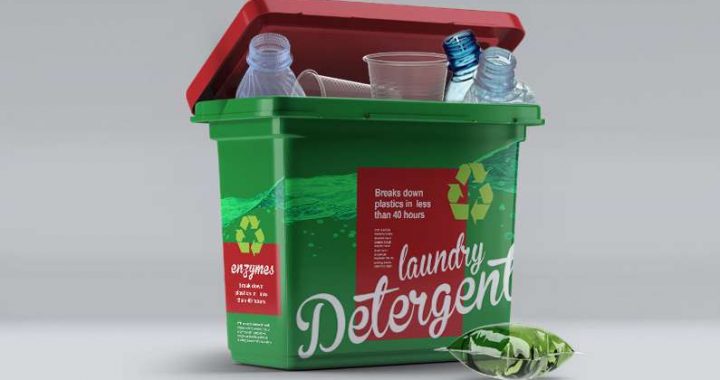With a simple chemical tweak, chemists have created robust enzymes that break down single-use bioplastic into its building blocks within two days
February 1, 2024
Researchers at King’s College London have found a way to break down plastics into their building blocks for recycling. The process takes less than 40 hours and uses an enzyme commonly found in bio-based laundry detergents.
The advance reported in the journal Cell Reports Physical Science could lead to an efficient way to recycle the single-use plastic called polylactic acid (PLA). “We have chosen polylactic acid as this plastic does not have any real way of properly recycling it,” says chemistry professor Alex Brogan. “Our development changes this, as we have been able to convert the plastic to its constituent building blocks in less than 40 hours at 90°C.”
Although PLA is made from renewable sources such as corn starch and sugar cane, it is just as big an environmental problem as petroleum-derived plastics. It is the most common commercial bioplastic—the world produced 457,000 tons in 2021—and is used mainly to make disposable food containers, cups, and utensils.
Most of these items end up in landfills, where they do not biodegrade. PLA can only biodegrade in industrial compost settings, where it takes 12 weeks to break down at 60°C. This makes industrial composting “a fairly energy intensive and time-consuming process of converting the plastic to fertilizer or mulch,” Brogan says.
Using enzymes for any kind of industrial processing, including plastic recycling, is attractive because they can be more efficient than other chemicals. But they tend to be unstable, especially at the relatively high temperatures needed to break down plastics.
Recommended Reading:
Material scientists set out to beat plastic packaging on three fronts. They succeeded.



